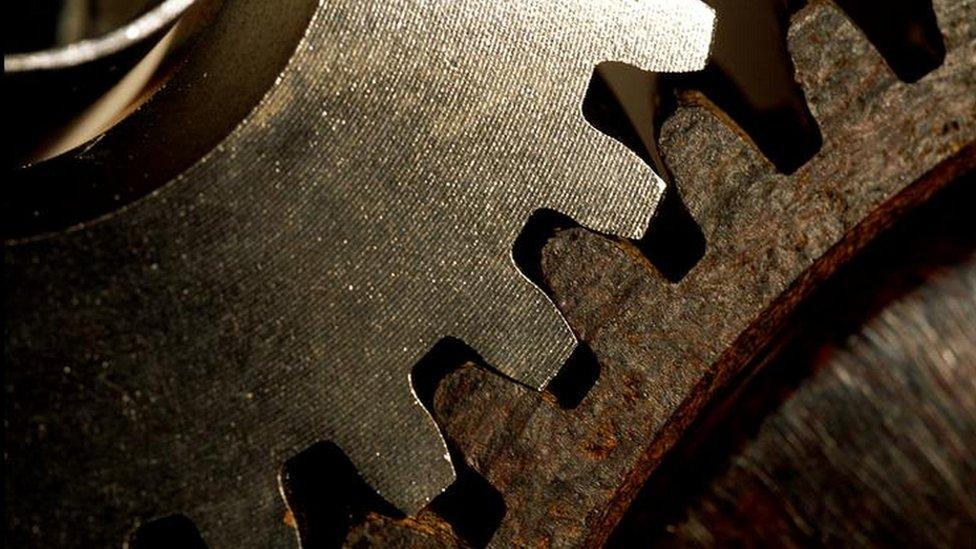Bezos-backed 10,000 Year Clock now under construction
- Published

A clock designed to run for ten millennia without human intervention is now under construction.
The 10,000 Year Clock is a project of the Long Now Foundation, a non-profit organisation that wants to make "long-term thinking more common".
It is being built on property owned by Amazon founder Jeff Bezos, beneath a mountain in the middle of a desert in Texas,
There is currently no completion date scheduled for the project.
The clock's creator, American inventor Danny Hillis, first publicly shared the concept in an essay for Wired in 1995, external.
In it, he describes his vision of a timepiece that ticks once every year, with a century hand that moves just once every 100 years and a cuckoo that emerges every 1,000.
The clock is designed to capture energy from changes in temperature to power its timekeeping apparatus, according to the Long Now Foundation, external. But it will not be able to store enough energy to display the time unless visitors "wind" it with a hand-turned wheel.
Bezos shared a video of the clock's construction on Twitter on Tuesday:
Allow X content?
This article contains content provided by X. We ask for your permission before anything is loaded, as they may be using cookies and other technologies. You may want to read X’s cookie policy, external and privacy policy, external before accepting. To view this content choose ‘accept and continue’.
The project has attracted the support of influential artists and thinkers in addition to Bezos, whose contribution of $42 million (£30m) makes him its largest financial backer.
British musician Brian Eno, famous for his ambient compositions, has built a mechanical melody generator that will produce a different chime sequence every day for 10,000 years. Like the clock hands, the chimes will only work if visitors power the clock.
The first prototype of the clock, which was completed in 1999, is now on display at the Science Museum in London.
According to the Long Now Foundation, visitors will be able to hike to the site to see the finished product.
- Published27 July 2017
